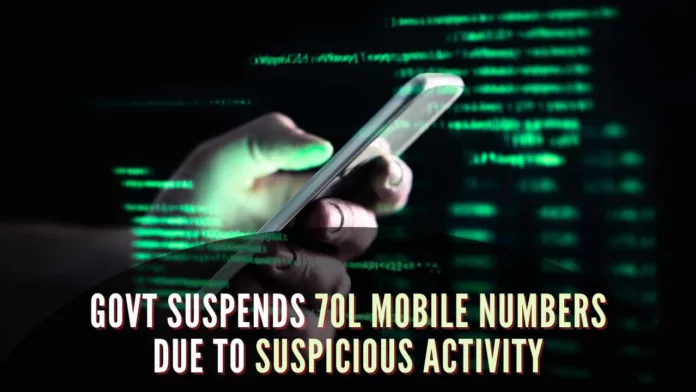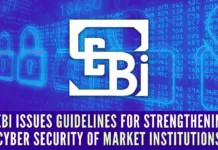
Centre discontinues 70 lakh mobile numbers due to suspicious activity: DFS Secretary
In order to check digital frauds, the Government of India has suspended 70 lakh mobile numbers on account of suspicious transactions, Financial Services Secretary Vivek Joshi said on Tuesday. He told this information to the media, after coming out from a meeting to discuss issues related to financial cyber security and increasing digital payment fraud. Joshi said banks have been asked to strengthen the system and processes in this regard. More such meetings would take place, he said, adding the next meeting is scheduled in January.
With regard to Aadhaar Enabled Payment System (AEPS) fraud, he said states have been asked to look into the issue and ensure data protection. He also said that there was a discussion with regard to the KYC standardization of merchants. The meeting chaired by the Financial Services Secretary also deliberated on how to ensure better coordination among various agencies to check cyber fraud.
Joshi said there was a need to create awareness about cyber fraud in society to protect gullible customers from being duped. During the meeting, the Indian Cyber Crime Co-ordination Centre made a presentation on the latest statistics of digital payment frauds as reported in the National Cyber Crime Reporting Portal (NCRP), including challenges and issues faced in countering such issues.
The meeting was attended by senior officials of the Department of Economic Affairs, Department of Revenue, Department of Telecom, Ministry of Electronics and Information Technology (MeitY), Telecom Regulatory Authority of India and National Payments Corporation of India. The meeting assumes significance in view of digital fraud witnessed by UCO Bank and Bank of Baroda in the recent past.
Earlier this month, Kolkata-based public sector lender UCO Bank reported erroneous credit of Rs.820 crore to account holders of the bank via Immediate Payment Service (IMPS). During November 10-13, the bank observed, that due to technical issues in IMPS, certain transaction(s) initiated by holders of other banks have resulted in credit to the account holders in UCO Bank without actual receipt of money from these banks. IMPS is a real-time interbank electronic funds transfer system without any intervention.
The bank blocked the recipients’ accounts and has been able to recover Rs.649 crore of the Rs.820 crore or about 79 percent of the amount. The public sector bank is yet to clarify whether this technical glitch was due to human error or a hacking attempt. However, the bank has reported the matter to the law enforcement agencies for necessary action.
For all the latest updates, download PGurus App.
- Supreme Court rejects plea to tally all VVPAT slips with EVM votes; says ‘no going back to paper ballot’ - April 26, 2024
- US report citing human rights violations is deeply biased: India - April 25, 2024
- Kotak Mahindra Bank shares tank 13%. Market Cap erodes by Rs.37,721 cr post-RBI action - April 25, 2024











In coming caller’s name must be displayed not just the number, that could enable the receiver to decide whether to receive the call most of the scams are due to anonymity the caller enjoys. It should be technologically possible to display the name of the SIM holder in stead of just number.